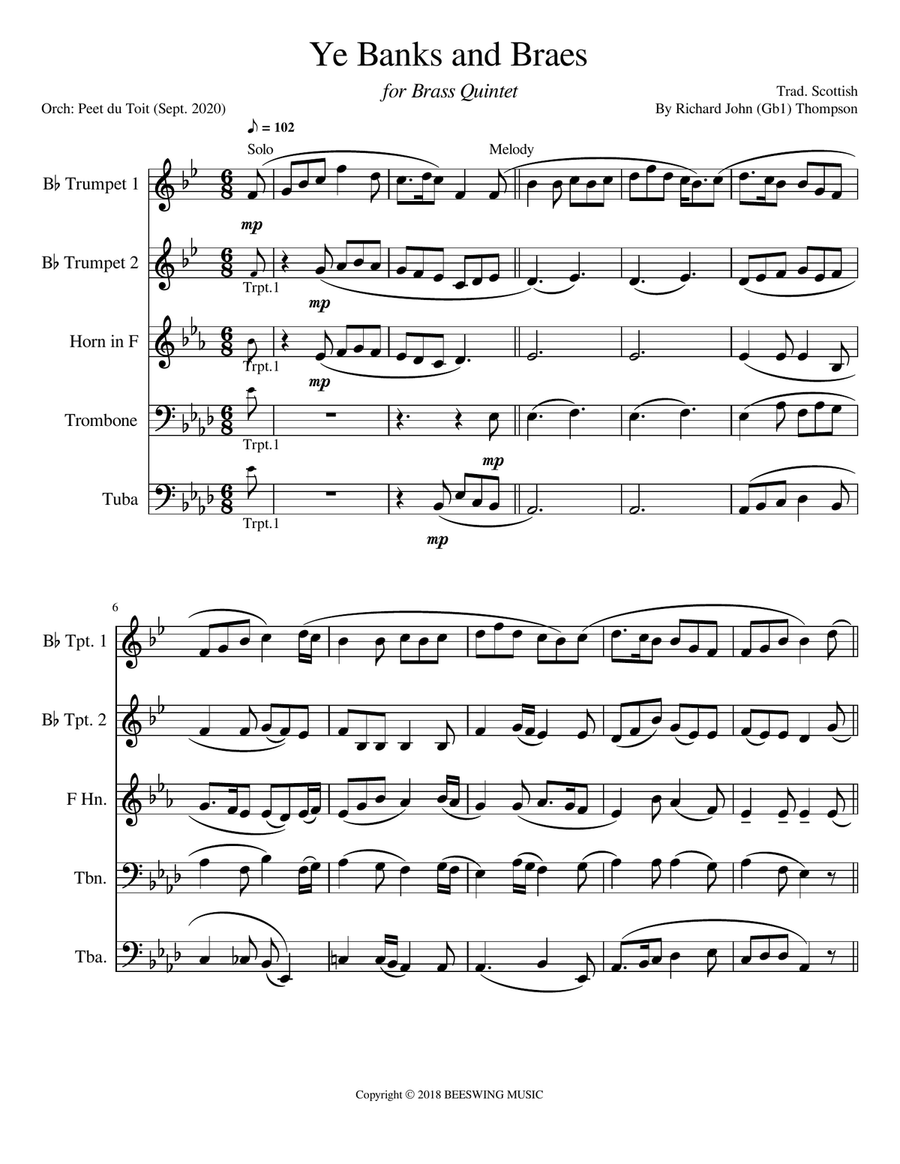Brass Ensemble,Brass Quintet Horn,Trombone,Trumpet,Tuba - Digital Download SKU: A0.1495808 Composed by Richard John (Gb1) Thompson. Arranged by Peet du Toit. Traditional. 7 pages. Peet du Toit #1072337. Published by Peet du Toit (A0.1495808). BANKS AND BRAES (O' BONNY DOON). AKA and see “Bonnie Doon,” Lost is My Quiet, Caledonian Hunt's Delight (The), Ye Banks and Braes. Scottish, Air and Waltz (6/8 or 3/4 time). The antiquarian William Chappell claims the tune is English on the strength of its being included in a Collection of English Songs by Dale (who published about 1780-1794) under the title Lost is my quiet. However, the collector John Glen (1891) relates a delightful story of the tune's origins involving the famous Scots poet, Robert Burns (1759-1796), who wrote to publisher George Thomson in 1794:Do you known the history of the air? It is curious enough. A good many years ago, Mr. James Miller, writer in your good own (Edinburgh), a gentleman whom, possibly, you know, was in company with our good friend Clarke; and taling of Scottish music, Miller expressed an ardent ambition to be able to compose a Scots air. Mr. Clarke, partly by way of a joke, told him to keep to the black keys of the harpsichord, and preserve some kind of rhythm, and he would infallibly compose a Scots air. Certain it is, that, in a few days, Mr. Miller produced the rudiments of an air which Mr. Clarke, with some touches and corrections, fashioned into the tune in question. Ritson, you know, has the same story of the black keys; but this account which I have just given you, Mr. Clarke informed me of several years ago.Miller's tune was first published under the title Caledonian Hunt's Delight (The) in Gow's 2nd Collection (1788), but Glen concludes that it is more likely that Lost is my quiet is a poor adaptation and nothing else. He also notes there is a tune having a supposed resemblance in Playford's Appollo's Banquet (1690) entitled Scotch Tune (A) (No. 68), but in the end he believes that neither Chappell's arguments nor facts are strong enough to deprive Mr. Miller of his claim. The Caledonian Hunt's Delight appears also in George Thomson's A Select Collection of Original Scottish Airs for the Voice (Edinburgh, 1793-1797), arranged by Kozeluch. A rondo on the air was composed by Domenico Corri (1746-1825) under the title Favourite Irish Air (which, of course, it is not).
